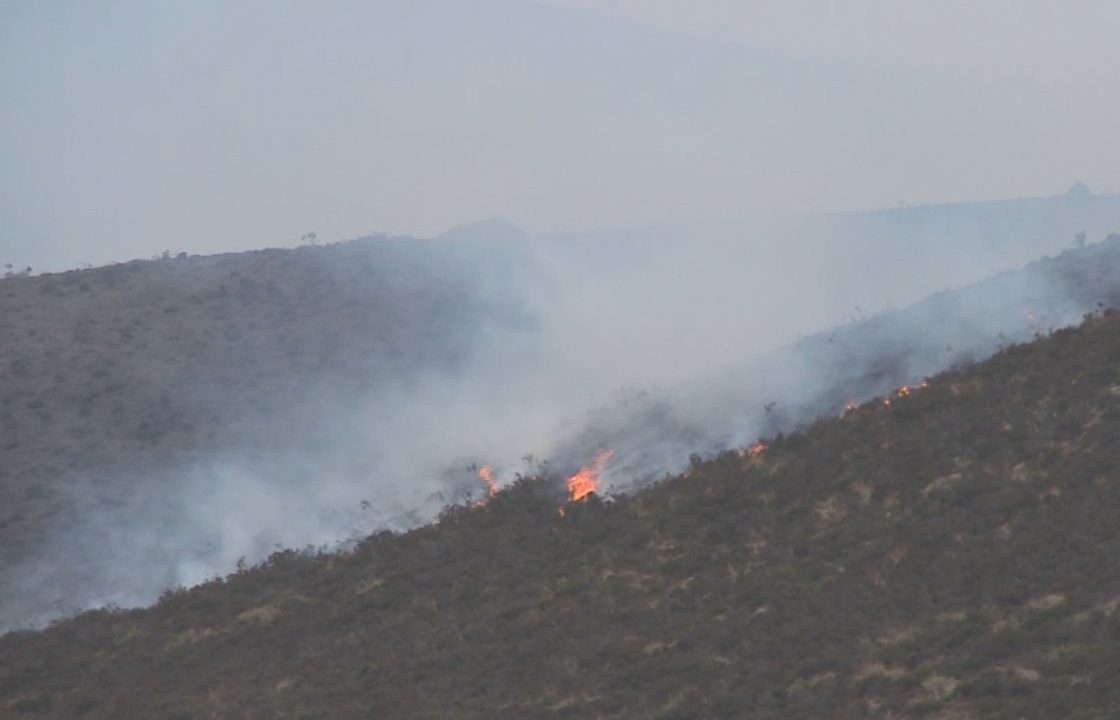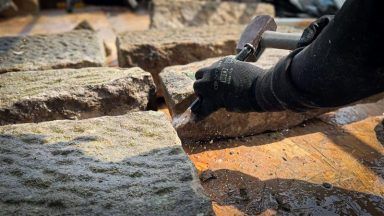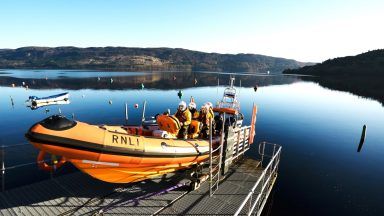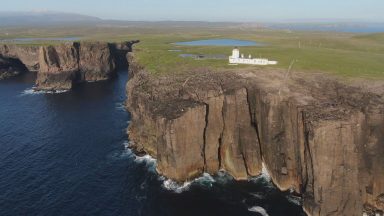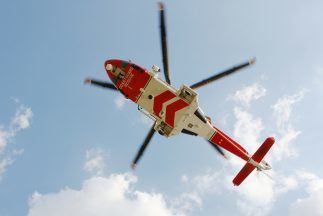Fire chiefs have issued an early warning in a bid to avert a repeat of wildfires that destroyed vast swathes of Scottish countryside last year.
New statistics from the Scottish Fire and Rescue Service (SFRS) show firefighters tackled an average of one wildfire every day across Scotland during spring and early summer last year.
A blaze at a nature reserve at Cannich in the Highlands was so vast it was captured by Nasa’s satellite cameras above Earth.
The event tested fire crews from across the north to their limits.
Bruce Farquharson, deputy assistant chief officer at the SFRS, said: “It burned for weeks and it took hundreds of firefighters and other partners to extinguish.
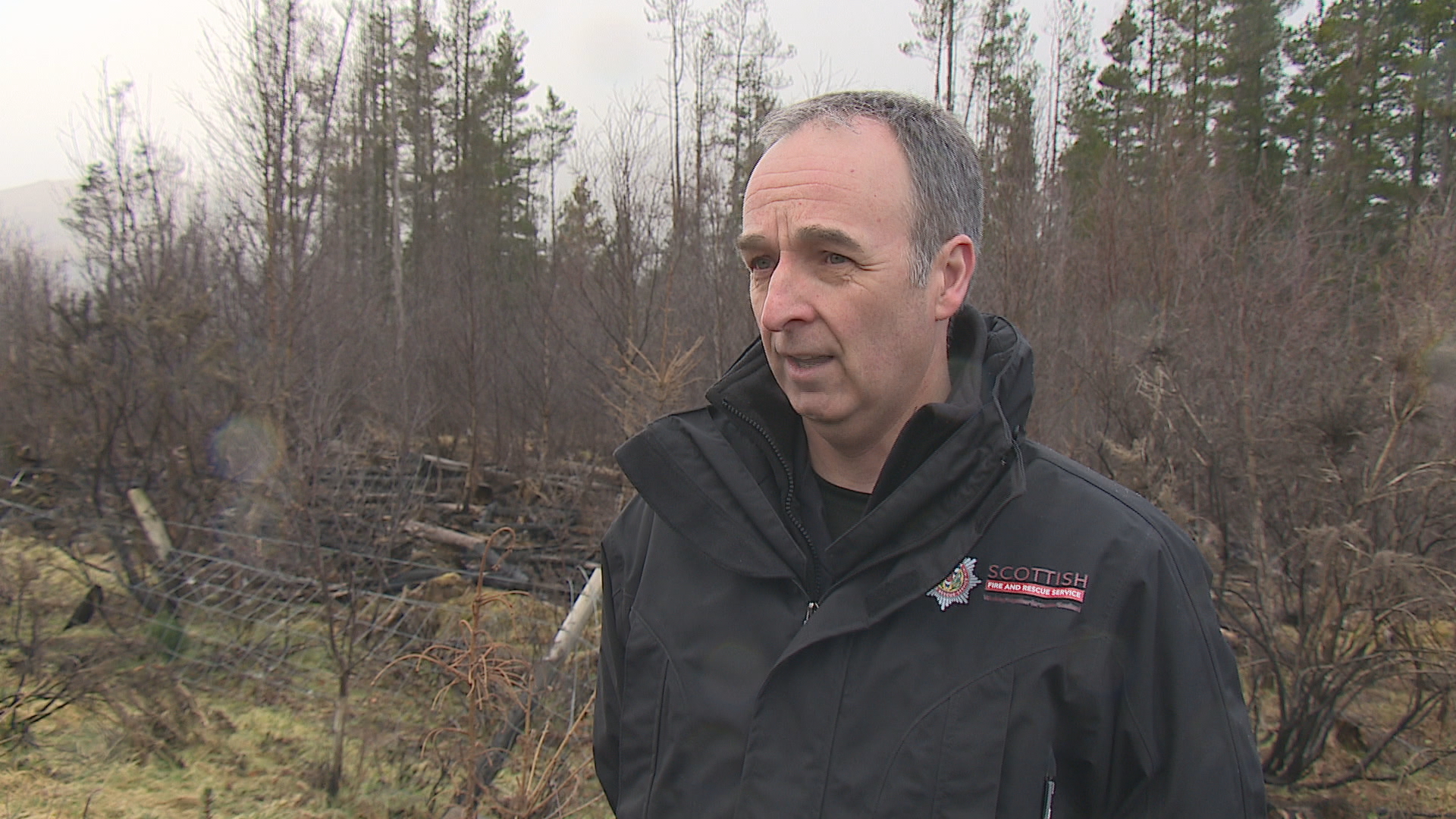 STV News
STV News“The terrain was challenging. It’s hard, mountainous terrain. The underfoot conditions were very, very difficult.
“It’s very remote, so there’s a challenge in getting people and resources to the scene, but the firefighters did a fantastic job in really arduous conditions – supported by partner agencies – to extinguish the fire safely.
“We would encourage you not to have a fire and there’s a very good reason for that. Fire will spread anywhere and everywhere it can.
“We would encourage people who want to cook in the countryside to use stoves. Disposable barbecues are not great. They have a potential to set fire to above ground fuels but also to the peat below ground, and naked flames of any sort are to be discouraged.”
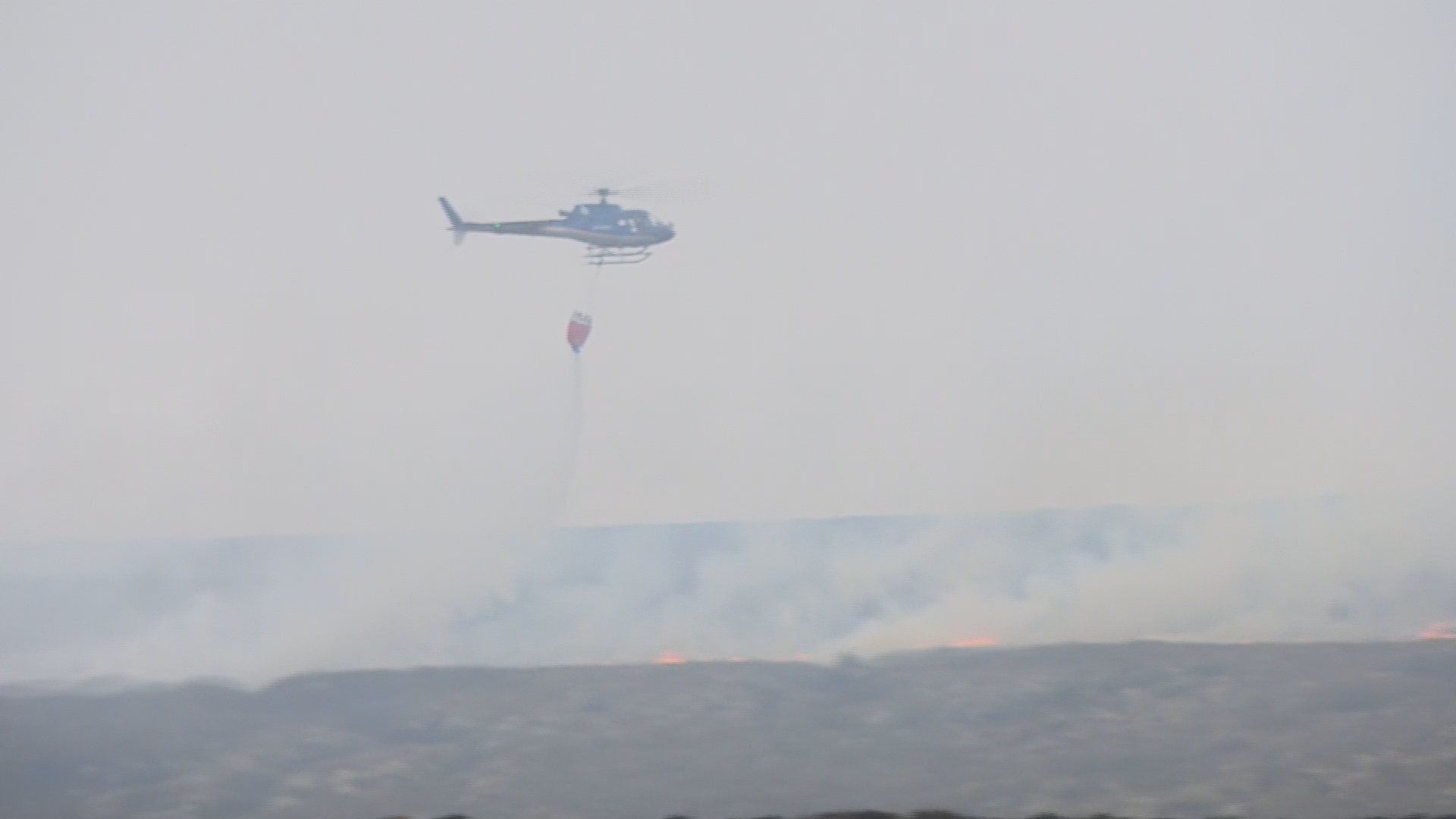 STV News
STV NewsA prolonged warm and dry spell last June was a precursor to multiple wildfires.
According to the SFRS, a large number of wildfires are caused by “well intentioned people”. That happened in the wilds of Cannich, where a stove was accidentally knocked over.
Nature is taking its course, gradually repairing the 1,500 hectares of Cannich woodland scorched last year. The scale of the loss of wildlife, chiefly ground-nesting birds, is said to be incalculable.
Six miles from Cannich, local conservationist Sir John Lister-Kaye watched in horror last June from his home at the Aigas Field Centre as the smoke billowed from the Corrimony nature reserve.
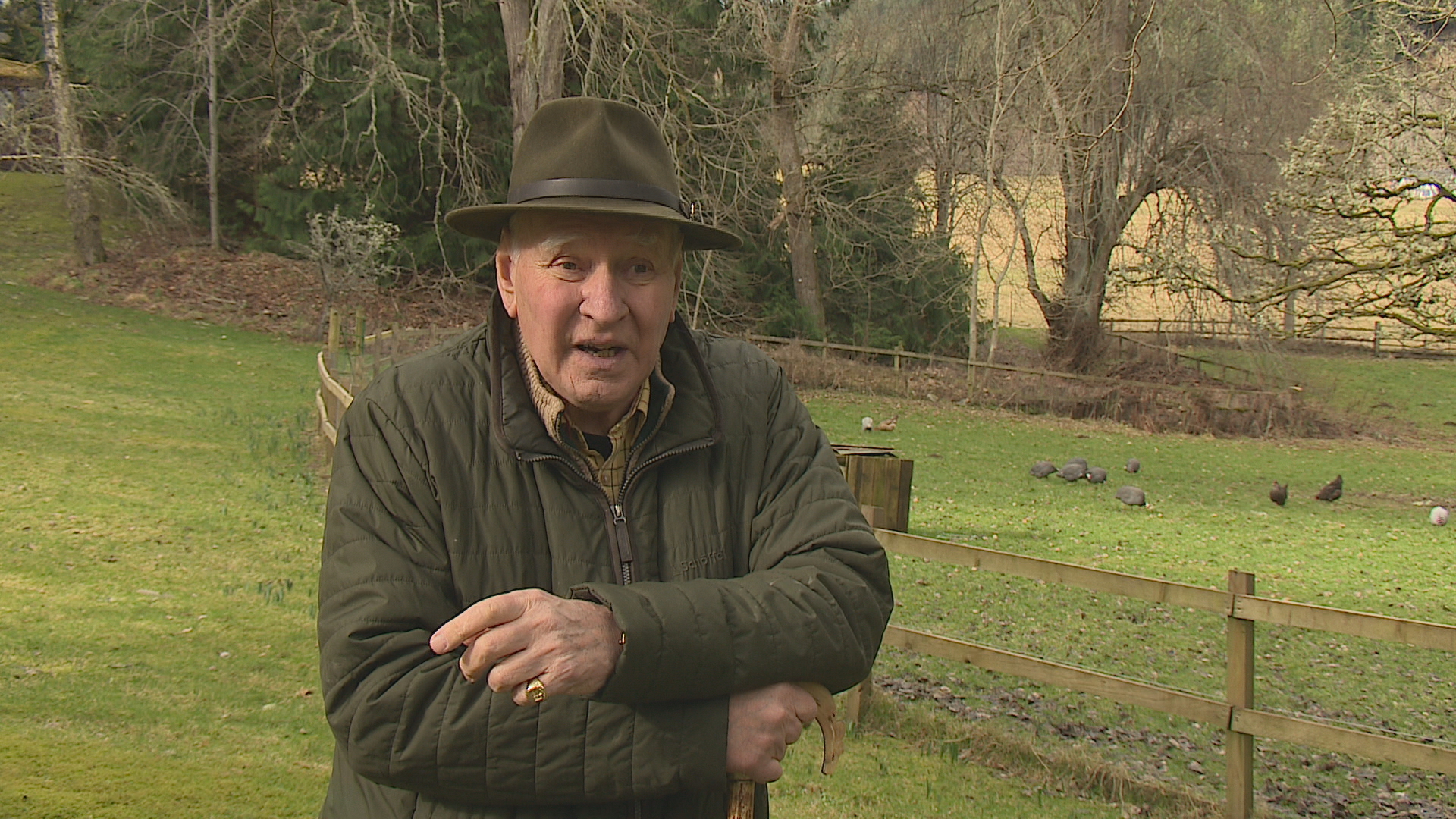 STV News
STV NewsHe said: “It was a very hot fire and it got into the peat and raged for several days.
“That will have taken out the whole invertebrate base of the food chain, which all those ground-nesting birds – if they were lucky enough to survive the fire – are dependent upon.
“And you can’t raise chicks unless you’ve got the bugs, the beetles, the flies, the invertebrate worms, all those creatures to feed them.”
SFRS data shows there were 133 wildfires in Scotland between March and June last year, 48 of which spread beyond a hectare. More than a third were in the Highlands. Ten others were sparked in the Western Isles.
Safety advice for trippers and holidaymakers is available on the Scottish Fire Service website.
Follow STV News on WhatsApp
Scan the QR code on your mobile device for all the latest news from around the country


